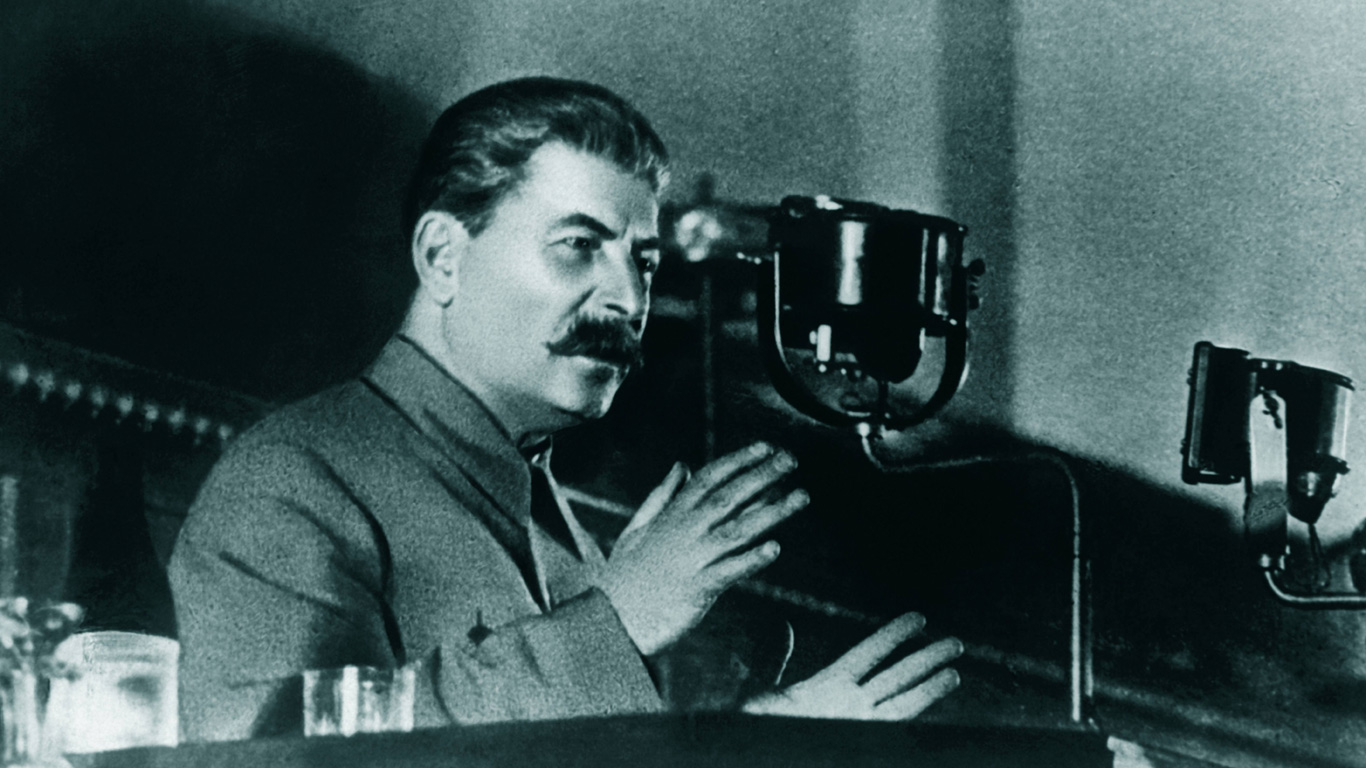Dieser Beitrag ist auch verfügbar auf:
Deutsch


Überwältigender Charme, selbstbewusstes Auftreten, strategisches Denken – Studien haben ergeben: All diese Eigenschaften sind bei Psychopathen besonders stark ausgeprägt. Und genau das macht es so schwer, sie zu erkennen. Denn sie nutzen diese positiven Charakterzüge als Fassade, um in der Gesellschaft unerkannt zu bleiben.


Alle Psychopathen haben eines gemeinsam: Ein Cluster aus sieben Eigenschaften macht sie zu eiskalten Überfliegern – genau wie den Serienkiller Patrick Bateman, Hauptfigur des Thrillers „American Psycho“ (das Bild zeigt den Schauspieler Christian Bale in der Verfilmung aus dem Jahr 2000). Der Psychologe Kevin Dutton nennt diese Merkmale die „Seven Deadly Wins“. Sie sind bei jedem Psychopathen verschieden stark ausgeprägt. Die Kombination dieser Eigenschaften entscheidet letztendlich, wie sich ein Psychopath verhält. Die folgenden sieben Männer besitzen all diese Eigenschaften – wobei bei jedem von ihnen eine davon besonders stark in der Persönlichkeit verankert ist …

Tödliche Eigenschaft Nr. 1: Skrupellosigkeit

Tödliche Eigenschaft Nr. 2: Charme
Sie verstecken ihre eiskalte Natur hinter einem perfekt gewobenem Vorhang aus Charme. Wer einen Psychopathen trifft, merkt dies meist gar nicht. Grund: Sie wirken verständnisvoll, nett und aufrichtig. Erst wenn die Maskerade entweder nicht funktioniert oder der Psychopath sein Ziel erreicht hat, kommt sein wahres Ich zum Vorschein. Ein Psychopath, der diese Eigenschaft zur Perfektion brachte, ist der US-Serienmörder Ted Bundy: Er ist intelligent, gutaussehend und spielt den vollendeten Gentleman. Doch sobald er allein mit seinen Opfern ist, stellt er die Komplimente ein. Er vergewaltigt und ermordet sie. Bundy hatte 35 bis sechzig Frauen und Mädchen getötet, als er 1978 festgenommen wird.

Tödliche Eigenschaft Nr. 3: Konzentration

Tödliche Eigenschaft Nr. 4: Belastbarkeit

Tödliche Eigenschaft Nr. 5: Selbstbewusstsein
Psychopathen sind unheimlich selbstbewusst und drücken mit jeder Geste Überlegenheit aus. Das macht sie besonders in Krisensituationen zu starken Führungskräften. Denn statt in Panik zu verfallen, wirken sie kompetent. Bei dem ostafrikanischen Diktator Idi Amin ist diese psychopathische Eigenschaft besonders stark ausgeprägt: Sein Amt als Präsident von Uganda ist ihm nicht genug. Er bietet zum Beispiel der britischen Königin seine Liebesdienste an und schlägt vor, der König von Schottland zu werden. In Uganda herrscht er von 1971 bis 1979 als grausamer Tyrann. Etwa 300.000 Menschen sterben in Folterkammern oder durch Amins Todesschwadronen, die durch das Land ziehen.

Tödliche Eigenschaft Nr. 6: Manipulation
Sie entschlüsseln kleinste Gesten und lesen die Gedanken ihres Gegenübers. Psychopathen wissen, wie wir uns fühlen, und nutzen unsere Emotionen zu ihrem Vorteil aus. Obwohl sie kein Mitgefühl empfinden, können sie es perfekt vortäuschen und unser Vertrauen gewinnen. Sobald sie es haben, steuern Psychopathen andere Menschen wie Schachfiguren. Der britische Psychopath Robert Maudsley – auf dessen Geschichte der Hollywood-Film „Das Schweigen der Lämmer“ (Bild) basiert – gilt als extrem manipulativ. Nachdem er 1974 wegen Mordes inhaftiert wird, schafft er es trotz seines inzwischen berüchtigten Rufs als eiskalter Killer, einen Häftling in seine Zelle zu locken und zu ermorden. Das Bild zeigt eine Szene aus „Das Schweigen der Lämmer“, mit Anthony Hopkins als Hauptfigur Hannibal Lecter, für die Robert Maudsley das Vorbild war.

Tödliche Eigenschaft Nr. 7: Aktionismus
Tödliche Eigenschaft Nr. 7: Aktionismus. Psychopathen lassen sich auf jede Situation ein. Sobald sie eine Strategie haben, setzen sie diese auch schnell in die Tat um. Denn für Psychopathen gibt es nichts Schlimmeres als Langeweile. Sie suchen die Abwechslung – egal, was es kostet oder welche Konsequenzen es für andere Menschen hat. Ein Beispiel dafür ist der amerikanische Psychopath Charles Manson (Bild): Er ist stets auf der Suche nach etwas Neuem, versucht sich unter anderem als Folkrockmusiker und gründet die Sekte Manson Family. Ihre Mitglieder leitet er zu Folterungen und Morden an. Heute sitzt er in Einzelhaft im Hochsicherheitstrakt von San Quentin (USA) – ein Albtraum für den nach Abwechslung gierenden Psychopathen.
Uncomfortable encounters with psychopaths are like lessons for the English psychologist Kevin Dutton. He visits the closed institutions of his country and has a mission: Dutton wants to find out how psychopaths manage to commit half of all serious crimes – when they only make up one percent of the population.
Why do they keep cheating or murdering normal people? The results of Dutton’s interviews with the inmates of the Broadmoor closed institution are as fascinating as they are eerie: the brains of psychopaths work differently, and this not only brings them disadvantages in everyday life. In some areas of life, psychopaths are even more talented than average.
What makes psychopaths exceptional?
You could be the surgeon who saves someone’s life – or the man who smashed that person’s skull. “Psychopathy is not a question of black and white. You have to think of it more like a scale or a DJ console,” says Dutton. If all the controls are turned up to full, you’ll probably end up behind bars for thirty years. But violence is not necessarily one of the criteria for a psychopath – nor is intelligence.
However, these characteristics determine how one develops. People who are psychopathic and violent often become criminals. But when intelligence comes into play instead of violence, many psychopaths end up in parliament or in the operating room. The controls on the psychopath’s console only need to be turned up in moderation and in the right combination in order to have a career as a psychopath.
No pity: When can feelings get in the way?
Let’s take the British neurologist Dr. Geraghty (Editor’s note: The names of Dr. Geraghty and all inmates have been changed): thousands of people trust him to go under the knife. There are probably only a few characteristics that distinguish him from a dangerous criminal. Geraghty is one of the best in his field not because of his compassion, but because of his lack of emotion.
“I have no compassion for my patients. I cannot afford myself that luxury. In the operating room, I am reborn as a cold, heartless machine, in tune with scalpel, drill and saw. When you are cutting away and outsmarting death, emotions have no place. They mean insecurity and are bad for business. I have erased my emotions over the years,” he explains.
In the operating room, his brain is focused only on his task. It ruthlessly filters out fear and all other factors that could distract it. Thanks to his ability to push his emotions into the background, Geraghty’s performances are above average.
No fear: How do I turn off the fear in my head?
Psychopaths would approach any model. They don’t let any woman intimidate them – not because they are always successful, but because fear is a foreign word to them. Their brains are wired differently: “It filters out fear. The fear center in the amygdala is never active. This means that a psychopath does not perceive threats as such,” explains Dutton.
This trait gives the psychopath nerves of steel and great resilience. This makes some psychopaths ideal soldiers. When selecting its SAS special forces, the British Army goes to great lengths to test the resilience of its recruits to the limit. “You don’t break the psyche with violence itself, but with threats,” says one trainer.
Particularly popular: the truck test. He waits for the recruits when they are already physically exhausted. Then the instructors tie up a soldier and place him in front of a truck. They blindfold him. The truck slowly moves forward until the engine is only centimeters away from the soldier’s ear. The noise is just the beginning: the driver jumps out and starts the engine.
Someone in the distance asks if the driver has pulled the handbrake. Now another instructor presses a spare tire to the recruit’s temple – the pressure is increasing. “After a few seconds, we take the tire away, pull off the eye shield and shout at him. At this point, many give up,” explains the instructor.
No fear of anything
Such stress tests are a joke for psychopaths. When Dutton visits the maximum security Broadmoor prison, the inmates explain to him why: “It has nothing to do with courage. If you’re never afraid, you don’t need to be brave, do you? The way I understand fear – to be honest, I’ve never been afraid – it’s usually unfounded anyway. The truck stunt is just a mind game,” says the psychopath Leslie.
His tip for everyday life: “Stop your brain from rushing into future scenarios. If you do that, you will also gain courage.” Danny, another inmate at Broadmoor, knows another trick: “Next time you’re really scared, ask yourself: What would I do if I didn’t feel this way? And then just do it.”
The motto of psychopaths: “Just do it!”
An example: Almost everyone wants a raise. “But very few people dare to ask,” says Dutton. “Many people are afraid of what their boss thinks or what their colleagues think of them,” he continues. A psychopath focuses on the positive consequences of the salary increase.
This makes him more confident and convincing when talking to his boss. The result: In all probability, he leaves the room with more salary than his colleagues. The psychopath doesn’t care what they think of him – his motto is: “Just do it.” This mentality gives psychopaths another advantage: they never put anything off and therefore work more effectively.
A look into the psychopath’s brain
Researchers at the University of Tübingen have even found a way to make stress training and psychological tricks unnecessary. Using so-called TMS technology, they can make any person as nervous as a psychopath within seconds.
TMS – transcranial magnetic stimulation – works on the principle of a light dimmer. It can inhibit electrical signals in certain areas of the brain . “The emotional center, the amygdala, is crucial for the psychopath experiment,” emphasizes Dutton. TMS literally switches them off and thus also our fear. The disadvantage: The effect only lasts about half an hour.






